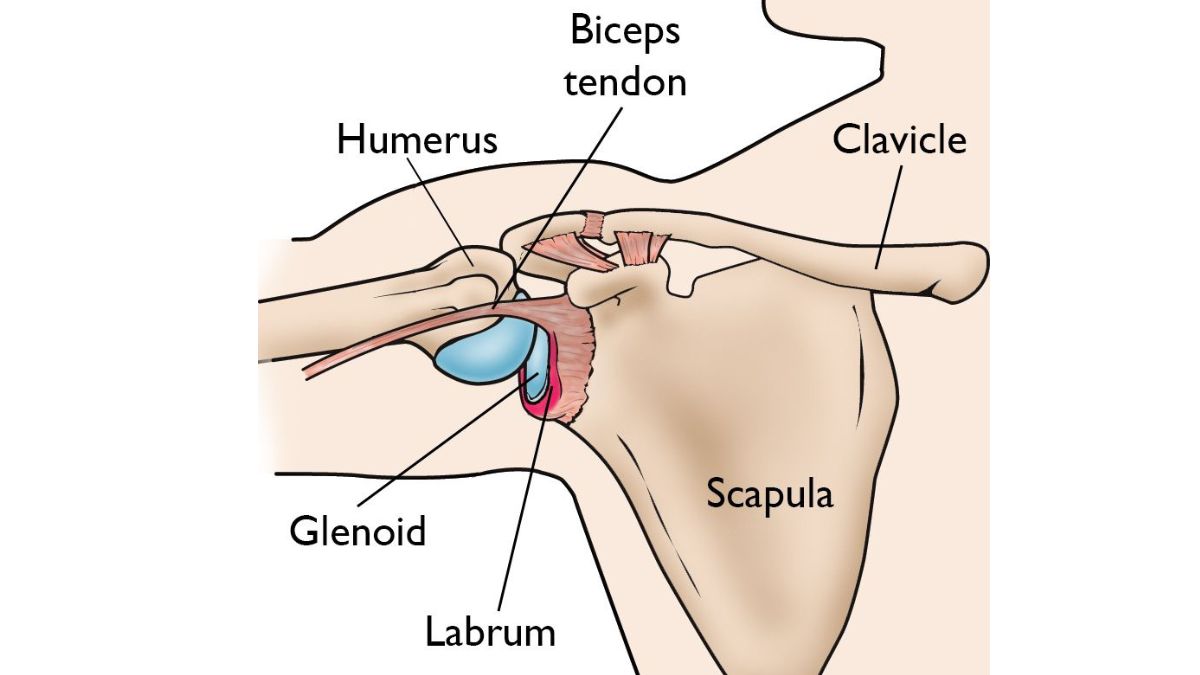HEALTH
From Minor Injuries to Lifelong Consequences: Why Every Case Deserves Expert Attention

Most people shrug off minor injuries. A slip on a wet floor, a fender bender at a stoplight, or even a tumble on a broken sidewalk – none of these seem like major life-changing events.
You brush it off, maybe take some painkillers, and move on with your day.
But what if that minor injury isn’t so minor?
What if, months later, you’re still in pain, struggling to work, or dealing with medical bills that you never saw coming?
Here’s what you need to know.
The Aftermath of “Minor” Injuries
A lot of injuries don’t show symptoms or their full impact immediately. You might feel fine at first, only to wake up days or weeks later with headaches and pain that won’t go away.
Here’s why:
- Some injuries have delayed symptoms. Whiplash, concussions, and soft tissue injuries take time to show themselves. What feels like “only” a sore neck could turn into chronic pain.
- There might be underlying damage. A fall seems harmless until an undiagnosed fracture or internal injury pops up.
- Even if your injury really is minor, it can still lead to long-term costs, including physical therapy, lost income, and unexpected medical expenses.
So, ignoring an injury, no matter how minor you think it is, will only create more suffering (and bills) down the road.
When Minor Injuries Turn into Major Legal Cases
A surprising number of personal injury claims start with something that seemed minor and insignificant at first.
Some examples of this are:
- You tripped over an uneven sidewalk, initially thinking you just bruised your knee. A few months later, you realize that you needed knee surgery and are now unable to work. You could’ve sued and won a settlement.
- You hit the back of your car at a red light, and it felt fine at the scene. Days later, you start experiencing severe back pain that turns out to be a herniated disc. Your “minor” back pain now requires surgery.
- You go shopping at a retail store and slip on the wet floor. Brushing off the pain as just a sprain on your leg, you go about your day. Months later, you’re diagnosed with CRPS, or complex regional pain syndrome, a permanent nerve condition.
In all these cases, something minor turned into something serious, requiring legal action. A simple back pain or even a headache can cost you physically, financially, and emotionally.
The Insurance Company’s Favorite Excuse
If there’s one thing insurance companies love doing, it’s downplaying injuries.
They know that if they can convince you that your injury isn’t serious, they can get away with offering little to no compensation.
Some of their common tactics include:
- Denying treatment necessity. They will argue that your medical treatments were not necessary, were too excessive, or were not related to the accident.
- Blaming pre-existing conditions. If you’ve ever had back pain in your life, they might say that your injury was not caused by the accident.
- Pushing for a quick settlement. They may offer you a small payout right away in hopes that you will accept it before realizing the full extent of your injuries.
This is where you need legal expertise.
If this is something you are or might be going through, it’s crucial to look for an experienced team of nationwide injury lawyers. They understand these tactics and know how to counter them.
Plus, they can gather medical records, consult experts, and fight for you so that you’re not left covering the costs of an injury you didn’t cause.
Why You Should Never Settle Too Soon
Many people make the mistake of accepting a quick settlement, only to realize later that it doesn’t even come close to covering their actual expenses.
Here’s why patience matters:
- Medical treatments take time. Some conditions take months to diagnose. Rushing to settle can mean you won’t get compensation for future medical costs.
- There may be hidden financial losses, and you might not immediately realize them. An injury can easily impact your work and daily life.
- Legal leverage increases over time. The more evidence your lawyer gathers, the stronger your case becomes.
A quick settlement does sound good in the moment, but don’t fall for it. It could mean walking away with far less than you actually deserve.
The Role of Witnesses in Injury Cases
Sometimes, proving the severity of an injury isn’t straightforward.
This is where expert witnesses can help.
In personal injury cases, doctors, specialists, and even economists can provide testimony to support your claim.
For example:
- A neurologist can explain how a mild concussion from the accident led to long-term cognitive issues.
- A physical therapist can testify about how a soft tissue injury affected your mobility.
- An economist can calculate your lost earning potential due to the injury.
These expert witnesses can make a huge difference in how seriously your case is taken.
What to Do If You’re Injured
If you’ve been in an accident, the best thing you can do is treat it as seriously as possible from the start.
Here’s a checklist to follow:
- Seek medical attention immediately. Even if you feel fine, see a doctor. They will document any potential injuries and catch hidden ones early.
- Document everything. Take photos of the scene, your injuries, and anything that contributed to the accident.
- Keep track of your symptoms. Write down any pain or discomfort, even if it seems minor. This will help prove delayed injuries.
- Avoid speaking to insurance adjusters alone. They will try to get you to downplay your injuries. It’s best to consult a lawyer first.
- Talk to a lawyer. Even if you’re not sure whether you have a case, getting legal advice early prevents costly mistakes.
The Cost of Underestimating an Injury
Many people don’t think of pursuing legal action because they don’t want to deal with the hassle or the financial aspect of it. But the cost of ignoring an injury can be much greater.
Think chronic pain, medical bills, and lost income. They become your long-term burdens.
A simple consultation with a lawyer can help you understand your options. You wouldn’t want to be left struggling financially due to someone else’s negligence.
Final Thoughts
Minor injuries are often anything but minor. A small inconvenience today could turn into years of medical issues, financial struggles, and legal battles.
The best way to protect yourself is to take every injury seriously, document everything, and get expert legal help when needed.
Because at the end of the day, you don’t just need compensation but also the support and resources to help you heal and move forward.
HEALTH
What Is a SLAP Tear? Understanding This Common Shoulder Injury

If you’ve been experiencing shoulder pain, clicking, or a loss of strength—especially during overhead movements—you may be dealing with more than just a strain. One possible culprit is a SLAP tear, a specific type of injury to the shoulder joint that can affect everyone from athletes to weekend warriors.
What Does “SLAP Tear” Mean?
SLAP stands for Superior Labrum Anterior and Posterior. In simpler terms, it’s a tear in the top part of the labrum—the ring of cartilage that surrounds the socket of your shoulder joint. This cartilage helps stabilize your shoulder and keep the ball of your upper arm bone in place. When torn, the result can be instability, discomfort, and reduced mobility.
How Does a SLAP Tear Happen?
SLAP tears can result from either acute trauma or repetitive motion. Some of the most common causes include:
- Falling on an outstretched arm
- Lifting heavy objects or weights with poor form
- Repetitive overhead movements (common in baseball, swimming, tennis, etc.)
- Sudden pulling motions (like grabbing something while falling)
In some cases, SLAP tears can also be part of the natural wear-and-tear process, especially in people over 40.
Common Symptoms of a SLAP Tear
Not all SLAP tears feel the same, but here are some symptoms to watch for:
- Deep shoulder pain, especially during overhead activity
- A clicking or popping sensation
- Weakness or fatigue in the shoulder
- Limited range of motion
- A feeling that your shoulder is going to “slip out”
These symptoms often mimic other shoulder conditions, which is why getting an accurate diagnosis is so important.
Diagnosing a SLAP Tear
A shoulder specialist will typically begin with a physical exam and a review of your activity history. Imaging tests like an MRI can help confirm the diagnosis, though in some cases, an arthroscopic procedure may be necessary to fully visualize the tear.
For a deeper dive into how SLAP tears are diagnosed and treated, visit: https://levelupshoulder.com/slap-tears/
Treatment Options
Treatment depends on the severity of the tear and your activity level. In mild cases, rest, anti-inflammatory medications, and physical therapy may be enough to restore function. For more serious tears—especially in younger or highly active individuals—arthroscopic surgery may be recommended to repair the torn labrum.
Post-surgery, a rehabilitation program will help restore range of motion, rebuild strength, and reduce the risk of reinjury.
Don’t Ignore Shoulder Pain
A SLAP tear can seriously impact your ability to perform daily tasks and enjoy physical activity. If you’re experiencing persistent shoulder pain, especially with overhead movements, it’s worth getting it checked out. Early treatment leads to better outcomes and a quicker return to the things you love.
HEALTH
What Is Orthopedic Medicine? An Intro to Bone and Joint Health

From sore knees after a weekend hike to a torn rotator cuff that just won’t heal, many of us deal with bone, joint, or muscle pain at some point in our lives. That’s where orthopedic medicine comes in. But what exactly does it cover—and when should you see an orthopedic specialist?
Whether you’re an athlete, a weekend warrior, or simply want to stay mobile and pain-free as you age, understanding the basics of orthopedic care can help you make better decisions about your health.
What Is Orthopedic Medicine?
Orthopedic medicine is a branch of medicine focused on the musculoskeletal system, which includes your bones, joints, ligaments, tendons, muscles, and nerves. The goal is to diagnose, treat, and prevent injuries and disorders that affect movement, stability, and function.
Orthopedic specialists, also known as orthopedists or orthopedic surgeons, are trained to handle everything from acute injuries (like fractures and dislocations) to chronic conditions such as arthritis, tendonitis, and degenerative joint disease.
What Conditions Do Orthopedic Doctors Treat?
Orthopedic medicine covers a wide range of conditions affecting different areas of the body, including:
- Shoulder injuries: rotator cuff tears, labral tears, impingement
- Knee issues: ACL tears, meniscus injuries, runner’s knee, arthritis
- Spine problems: herniated discs, sciatica, scoliosis
- Hip pain: bursitis, labral tears, osteoarthritis
- Hand and wrist: carpal tunnel syndrome, fractures, tendonitis
- Foot and ankle: plantar fasciitis, sprains, Achilles tendon injuries
Many of these conditions can be treated with non-surgical methods, though surgery may be necessary in more severe cases.
Types of Orthopedic Care
Orthopedic care includes both surgical and non-surgical options, depending on the injury or condition. Treatment approaches may involve:
- Physical therapy and rehabilitation
- Injections (such as cortisone or PRP) to reduce inflammation and pain
- Bracing or casting for stability and healing
- Minimally invasive surgery, like arthroscopy
- Joint replacement surgery, typically for hips, knees, or shoulders
For example, orthopedic treatments by Level Up Shoulder, Dr. Drake focus not only on surgical repair of shoulder injuries, but also on functional rehab, strength restoration, and getting patients back to the activities they love—faster and stronger.
When Should You See an Orthopedic Doctor?
If you’re experiencing any of the following, it may be time to schedule a consultation:
- Persistent joint or muscle pain
- Swelling or stiffness that doesn’t improve with rest
- Limited range of motion in a joint
- Weakness or instability
- An injury that isn’t healing properly
- Pain that interferes with your daily life or sleep
Early intervention can prevent long-term damage and get you back to full strength sooner.
Conclusion
Orthopedic medicine plays a vital role in keeping your body moving the way it should. Whether you’ve suffered a sports injury or are dealing with years of wear and tear, orthopedic specialists are trained to help you regain mobility, reduce pain, and improve your quality of life.
From preventive care to advanced surgical procedures, orthopedic treatments are designed to keep your bones and joints working better, for longer.
HEALTH
Raising Healthy Smiles: The Essentials of Pediatric Dental Care

What Is Pediatric Dentistry?
In addition to providing dental care, pediatric dentistry promotes good oral hygiene from an early age. Unlike general dentistry, pediatric dentists focus on young patients’ unique challenges and considerations. Their specific training prepares them to prevent and treat oral health problems in newborns, kids, and teenagers. Facilities like a Pediatric Dentist in Thornton provide environments specifically designed for children, helping ease anxiety and making dental visits enjoyable experiences. A pediatric facility’s vibrant and entertaining surroundings can significantly influence a child’s desire to get dental care.
The Importance of Early Dental Visits
Starting dental visits early is an investment in lifelong oral health. These initial visits, as recommended by the American Academy of Pediatric Dentistry, set the stage for understanding the importance of dental care. These are crucial periods when dentists can introduce children to oral hygiene and the significance of caring for their teeth. By capturing a child’s interest and removing any fear associated with dental visits, these experiences contribute to effectively monitoring and guiding the development of both baby and permanent teeth.
Understanding Common Pediatric Dental Issues
Children’s dental problems, including cavities and gum disease, are sometimes written off as trivial, but if ignored, they can cause serious health problems. Children are prone to cavities due to the sugary foods they consume and their sometimes irregular brushing habits. In addition, behaviors like thumb-sucking and extended use of pacifiers can affect tooth alignment and jaw development. By attending regular dental visits, parents can gain insights from dental professionals on mitigating these risks and ensuring early intervention. A more secure oral future can result from early detection of these disorders, which can stop them from developing into more serious tooth health difficulties.
Tips for Promoting Healthy Dental Habits
Creating a routine around dental care can help instill lifelong habits in children. They must be taught to use fluoride toothpaste and clean their teeth twice daily. Flossing should also be incorporated once teeth begin to touch. These habits need reinforcement at home to foster a sense of accountability in children. Parents can use visual aids or reward systems as positive reinforcements. Demonstrating proper techniques adds value, as children are likely to imitate the actions they observe. Good oral hygiene should be framed positively as an empowering practice rather than a chore.
Nutrition’s Role in Oral Health
A balanced diet is a pillar of strong oral health. Foods containing essential minerals, particularly calcium and phosphorus, are crucial in maintaining healthy enamel and oral well-being. Nuts, leafy greens, and dairy products can all significantly improve tooth health when consumed regularly. It’s also critical to restrict the consumption of acidic drinks and sugary foods that cause cavities. The resource on WebMD highlights the importance of a balanced diet in protecting your child’s teeth. Making informed choices about diet is an impactful way for parents to exercise control over their child’s oral health outside of the dental office.
How to Choose the Right Pediatric Dentist
Choosing a pediatric dentist shouldn’t be rushed. It’s a decision that can influence a child’s view of dental care. A pediatric dentist’s ability to communicate effectively with children and a friendly, inviting office atmosphere can make visits less intimidating. You could feel more at ease reading online reviews or asking friends for recommendations. The right dentist will engage with children in a way that builds trust and encourages enthusiasm for dental care. Parents are encouraged to visit potential dental practices to assess the environment and ensure it aligns with their child’s comfort levels and needs.
Setting Up a Child-Friendly Dental Routine
Making dental hygiene a habitual, positive practice begins with creativity. Utilizing tools such as songs, colorful toothbrushes, or even digital apps tracking brushing time can turn routine into fun. Allowing your child to pick out their dental supplies can also foster a sense of ownership over their oral hygiene. Establishing a routine, like brushing after breakfast and before bed, helps to weave dental care seamlessly into daily life. Consistency is key, and positive reinforcement can encourage a child to see these activities as enjoyable and rewarding.
Navigating Dental Anxiety in Children
Dental anxiety can significantly impact a child’s willingness to receive care, but it can be managed successfully. Introducing your child to the dental office gradually and supportively can alleviate fear. Explaining dental procedures using child-friendly language and offering reassurance can demystify the experience. Techniques such as deep breathing exercises or storytelling can divert attention, making visiting less daunting. Creating a supportive environment at home and during dental visits cultivates a positive attitude toward long-term dental wellness.
-

 BLOG1 year ago
BLOG1 year agoATFBooru: A Hub for Animated Art and Community
-

 CONSTRUCTION1 year ago
CONSTRUCTION1 year agoBuilding a Home Gym in Your Basement (7 Key Renovation Tips)
-

 BLOG1 year ago
BLOG1 year agoFictionmania: A Deep Dive into the World of Transformative Stories
-

 LIFESTYLE1 year ago
LIFESTYLE1 year agoVersatile Living: Stylish Indoor Outdoor Rugs with Eco-Friendly Appeal
-

 GAMES1 year ago
GAMES1 year agoSnow Rider 3D: Unblocked Tips and Tricks for Gamers
-

 LIFESTYLE1 year ago
LIFESTYLE1 year agoAchieve Elegance with Chic Blue Formal Dresses and Redken Professional Hair Care for All Hair Types
-

 BLOG1 year ago
BLOG1 year agoGIFHQ: A Comprehensive Guide
-

 BLOG1 year ago
BLOG1 year agoVincent herbert new wife: A Detailed Overview
